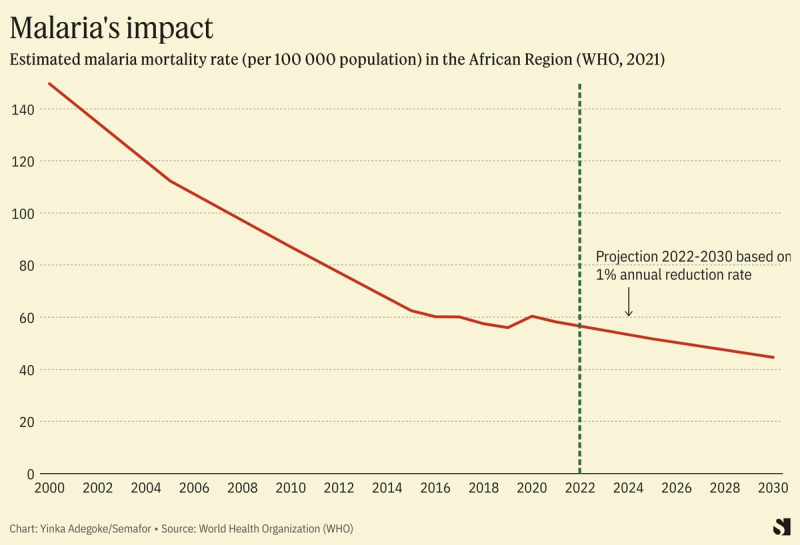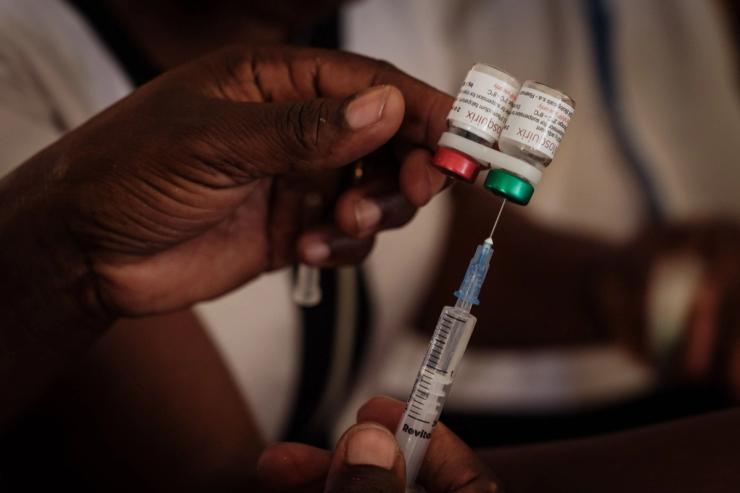The News
ACCRA, Ghana — Ghana is moving to the “elimination phase” in its longstanding battle with malaria, after successful years-long trials with groundbreaking vaccines, according to the country’s top health official.
Dr Patrick Aboagye, director general of the Ghana Health Service, told Semafor Africa the West African country has “seen a massive reduction in the malaria case load and malaria fatality has gone down” since RTS,S, the first malaria vaccine approved by the World Health Organization (WHO), was first piloted four years ago.
He explained that the plan, to be rolled out next year, involved moving from the current “control phase”. That means aiming to stop the local transmission of the disease altogether rather than merely reducing the number of cases to low levels.
Know More
Malaria, a mosquito-borne disease, kills more than 600,000 people every year, most of whom are children in Africa. The disease is responsible for an average reduction of 1.3% in Africa’s economic growth every year, according to the WHO. The cost is largely due to malaria-related absenteeism and public health interventions, such as insecticide spreading and the distribution of bed nets.

RTS,S — also known as Mosquirix, from British drugmaker GSK — was approved by the WHO last year.
Ghana in April became the first country in the world to approve the R21/Matrix-M jab, which was developed by Oxford University and is manufactured by the Serum Institute of India. The WHO recommended it in October. By then it had also been approved for use in Nigeria and Burkina Faso. R21 will be rolled out in those countries early next year, with doses expected to cost from $2 to $4.
Global health campaigners have warned that the supply of malaria vaccines is outstripped by demand, accusing the WHO of a lack of urgency in rolling out malaria shots.
Step Back
Major investment is being put into ensuring that African countries have access to existing and ground breaking vaccines. Up to $1 billion will be allocated to boost vaccine manufacturing in Africa under a new scheme set up by Gavi, a vaccine alliance. The aim of the African Vaccine Manufacturing Accelerator is to increase local production of vaccines.
Under the initiative, announced last week and due to be launched in June 2024, the African accelerator will pay manufacturers if their vaccines are approved by the World Health Organization. It would enable African countries to choose shots made on the continent for the same as it would cost to import from outside the continent.
The COVID-19 pandemic highlighted inequalities in access to vaccines and the lack of manufacturing facilities in African countries. The African Union has targeted African manufacturers supplying more than 60% of the continent’s vaccines by 2040 — up from about 1% now.
Notable
- Global health experts have hailed vaccines as a potential “game-changer” in the fight against malaria but manufacturing shots is “only the first step,” writes Jaishree Raman, of South Africa’s National Institute for Communicable Diseases, in The Conversation. Various “hurdles” include ensuring countries can procure the vaccines and making sure there is equitable delivery of the vaccines within countries, she writes.


